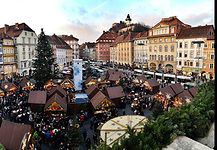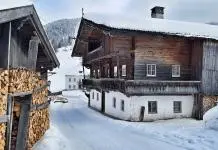Travel to Jordan
Jordan is a Middle Eastern country that is locked by land on all sides, apart from a thin sliver of coastline that overlooks the Red Sea and a frontage on the salty expanse of the Dead Sea.
Jordan shares borders with Israel, the West Bank, Syria, Iraq and Saudi Arabia.
Despite being a modern and quite Westernized nation, Jordan is also deeply rooted in Middle Eastern culture and tradition. Above 90% of the population are Sunni Muslims, with Christianity being the next dominant religion. Muslims and Christians live together in relative harmony, here in Jordan.
Since attaining independence from the British in 1946, Jordan was ruled by King Hussein till 1999. King Abdullah II succeeded him to the throne.
Culturally, the Jordanians are quite homogeneous except some social differences arising in the Bedouin areas.
Jordan’s top attraction is the ancient ruins of the fantastically preserved city of Petra, carved out of rose red sandstone. Petra was the capital of the Nabataean Kingdom that originated in the 6th Century BC.
The chance to remain fully afloat in the hyper saline Dead Sea is also a once in a lifetime experience.
We hope that this carefully prepared travel guide will ease your travel planning, for a future trip to Jordan.
Visa Requirements for Jordan
There are several countries who don’t require a Jordan tourist visa like citizens of Bahrain, Oman, Egypt, Kuwait, Turkey, Lebanon, Palestine, Qatar, Saudi Arabia, UAE and others. A Jordan visa application is required from citizens of many other countries and territories. Citizens of many countries can avail of a visa on arrival but depending on the country, there may be additional terms and conditions. Nationals of certain countries will have to apply for a visa at a Jordanian Diplomatic Mission and will require security approval.
Please check the current guidelines, of the visa requirements for your country and ways to get a Jordan visa before you travel to Jordan.
Important Cultural Information
Present day Jordan is a friendly and relatively liberal country. Muslims and Christians reside in the country without any hostility. The culture throughout the country is quite homogeneous with pockets of cultural diversity. One such region is that of the Bedouins and can diverge from mainstream Jordanian culture.
Although the country is relatively liberal, remember to wear modest clothing to religious sites. The people of Jordan are particularly sensitive to negative commentary about the monarchy. Respect for the King is absolutely required.
In accordance with the customs of the large Muslim community, during Ramadan, the streets and food stalls are empty and only open at sunset. Shops, malls and some restaurants may open even later.
Although the Jordanians are friendly, the western nature of the country and the mass tourism means that natives are not overly conscious of foreigners. Seeing tourists in the country is not as unusual thing. Nevertheless, you will be greeted with “ahlan wa sahlan” (I welcome you), wherever you go in Jordan.
The best time to visit Jordan is between March and May when temperatures are cooler.
Banking & Money in Jordan
The currency of Jordan is the Jordanian dinar (JOD), consisting of 100 fils and 100 piastres or qirsh. Coins are available in 1, 5, 10, 25 and 50 piastres. Banknotes are found in 1, 5, 10, 20 and 50 dinar denominations.
Acceptance of credit or debit cards is limited in Jordan. ATMs may reject foreign credit or debit cards and if they work may have a certain daily withdrawal limit. Those issued by Jordanian banks may be accepted at malls and restaurants, cash is the best option elsewhere. It is best to always have a stash of 1 and 5 dinar notes as availability of exact change may be limited, especially in taxis.
There are many banks in Jordan, many of which operate in the Arab countries. These include the Arab Bank, The Bank of Jordan, Bank Audi, Jordan Kuwaiti Bank, Cairo Amman Bank and others. International banks like Citi Bank and Societe Generale also function in Jordan.
Medical Emergency Information
Some important telephone numbers to keep at hand in Jordan include:
Call 911 in an emergency including police rescue and traffic department.
Emergency phone for calling paramedics or firefighters – 199
First Aid and Ambulance – 193
Rescue Police – 191 or 192
Tourist Police – 196 Extension 4661
Road Accident – 190
Some good hospitals that meet high standards in Amman include Jordan Hospital, Arab Medical Center, Al Khalidi Medical Center, Farah Hospital and others.
If you’re looking for travel insurance, we are an affiliate of World Nomads.
Wi-Fi and Internet in Jordan
The international calling code is +962.
The country of Jordan has good mobile coverage. The three main mobile phone operators are Zain- the largest, Orange and Umniah.
SIM cards can be bought inexpensively at the airport itself and it will cover data coverage. Temporary numbers that are card based may be bought at the airport or any mobile phone shop and these numbers can be recharged with the SIM cards.
If you do purchase a low cost prepaid phone then make sure the seller sets it up (may require understanding Arabic to set up), so that it is configured correctly to meet you particular needs.
There are quite a few Wi-Fi hotspots in Amman, to be found mostly if using cafes, restaurants, bakeries and hotels. Some outlets may charge for Wi-Fi. Make sure to set-up a VPN (like ExpressVPN) before using public Wi-Fi spots.
Arrival in Jordan
The main mode of arrival in Jordan is via air. The national airlines for Jordan is Royal Jordanian Airlines. A number of other foreign carriers like British Airways, Air France, airBaltic, Lufthansa, Austrian, Alitalia, Aegean, Turkish Airlines, Emirates and Qatar Airways also ply flights into Jordan.
The main international Amman airport is Queen Alia International Airport, 35km south of Amman. Royal Jordanian Bus Service provides transportation into the city.
Two other international Jordan airports of note include Marka International Airport in East Amman and King Hussein International Airport in Aqaba.
Search for flights to Jordan on Expedia.
Previously, the famous Hejaz railway ran through Amman on the famous historic route that ran from Damascus to Medina. It is set to reopen in 2020 as the Hejaz-Istanbul Railway.
Long distance buses operate from a number of destinations in the Middle East including Tel Aviv and Damascus.
It is possible to make inroads via car travel into Jordan from Israel/Palestinian Territories, Syria, Iran and Saudi Arabia but you must check on visa requirements at specific border crossings. Consider Europcar for car hire in Jordan.
Boats ply between the Egyptian port of Nuweiba and the Jordanian port of Aqaba. Ferry or speedboat services may be availed.
Areas of Jordan
Here are the main geographical regions of Jordan. The main cities in Jordan of note are the capital city of Amman and places like the beach resort of Aqaba, the university town of Irbid, the Roman ruins at Jerash, Karak, Madaba and Zarqa.
Northern Jordan
Northern Jordan is home to the country’s capital of Amman. This is the most developed region. Jerash is the site of one of the largest ancient Roman ruins to be found in the Middle East. The metropolises of Irbid and Zarqa are also of note.
King’s Highway
This region, south of Amman, takes its name from the ancient trade route that ran through this area. This is where you can access the Dead Sea, the lowest point on Earth and famous for its extreme salinity. Madaba and Kerak are two places of note.
Eastern Desert
An arid region located in the eastern part of the country. Home to Azraq– a desert oasis and Mafraq – a large city that links the desert to Northern Jordan.
Southern Desert
Another arid region situated to the south of the country and containing most of the country’s top visitor attractions. Namely the ancient city of Petra and the desert land of Wadi Rum. Also home to Aqaba, the port city that is on the Red Sea.
Transportation in Jordan
There isn’t an abundance of domestic air travel in Jordan. The only domestic air route is between Amman and Aqaba.
Another mode of travel linking Amman and Aqaba are private buses linking Amman, Irbid and Aqaba. The JETT bus company is a popular bus company.
JETT Buses also link Amman to Petra – the Petra tour takes about 4 hours and is an essential part of your Jordan tours.
Minibuses are good for connecting smaller towns. Service taxis called serves run on much the same routes as buses. They are usually white in colour.
Taxi travel is common in the cities. Taxis are bright yellow in color and are metered.
Jordan’s highways are well maintained and a car rental Jordan is inexpensive. The Desert Highway connects Aqaba, Amman and stretches all the way to Damascus.
What to Eat and Drink in Jordan
The cuisine of Jordan is reliant on bread, the daily staple being a flat-bread called ‘khobez’. Popular breakfast foods include fried eggs, cheese, the specialty zaatar and olive oil. Pastries and Manousheh are another popular breakfast item. Mansaf is considered the national dish and how can you leave Jordan without trying the falafel and hummus?
Some specialty Jordanian dishes to try include:
- mansaf (enormous platter layered with “shraak” bread, rice and lamb cooked in spicy sauce, eaten with jameed and sprinkled with pine nuts)
- falafel (crisp balls of spicy, minced chickpeas)
- maklouba (dish of rice, chicken, potatoes and vegetables)
- labneh (strained, thick, creamy yoghurt)
- khobez (large flat bread)
- shawarma (slow roasted spits of chicken, lamb or beef layered in pita pockets with onions and za’atar spice
- fattet hummus (ground chickpeas with tahini, pine nuts, pieces of pita bread and topped with green olive oil)
- moutabel (roasted eggplant with yoghurt, tahini,garlic and lemon juice)
Food and drinks in Jordan
Things to Do and See in Jordan
There are a host of spectacular world-famous Jordan tourist attractions, not restricted to the UNESCO World Heritage site of the Ancient Ruins of Petra and the actual place that Jesus Christ is thought to have been baptized.
One of the key Jordan places to visit are definitely the Archaeological Ruins at Petra. You simply must visit Petra. Sculpted of out rose red sandstone, this ancient Nabatean Kingdom dates from the 6th century BC. The entry fee to Petra is covered under the Jordan Pass along with entry visa fees.
Read our Petra itinerary to plan your trip!
A for a float in the salt water is a surreal, once in a lifetime experience. It is also the lowest point on Earth. This ocean water body is encircled by mountains.
Aqaba is Jordan’s main beach resort overlooking the Red Sea. It has a number of super luxurious resorts and hotels and the perfect place for some relaxing beach time.
Wadi Rum is the place to visit for a Bedouin tour. Situated in Southern Jordan just off the Desert Highway, the desolate land of sand dunes and towering rock. Wadi Rum was the backdrop for the famous film classic, Lawrence of Arabia. Besides from visiting a Bedouin, you can go hiking in Wadi Rum.
The city of Jerash, north of Amman, is home to one of the best preserved Roman Ruins in the Middle East. Byzantine Churches, temples, forums and plazas are all examples of how this amazing Roman city functioned in its heyday.
Other sites to include in your list of places to visit in Jordan include Al-Maghtas, the capital of Amman, Mujib Nature Reserve, Dana Nature Reserve and others.
Things to do & see in Jordan
Shopping in Jordan
Some traditional Jordanian items to take home are:
- Spices like sumac and za’atar
- Sweets like ‘baklava’ or ‘osh al bulbul’ (pistachio nests)
- Apparel particularly Bedouin dresses
- Camel hair rugs
- Hand painted ceramics and sand art in bottles
- Tribal jewellery particularly ones made of coins
- Mosaic artworks
- Inlay work boxes and furniture
- Dead Sea products especially related to skincare and salts.
Places to shop in Jordan, include some of the best bazars, shops and malls. A box of sweets from the renowned Zalatimo Sweets is a great edible gift to take back home. Also of note is Ajloun olive oil. Pick up spices from shops like Kabatilo Spice Shops, which are well known for their quality.
Al Balad is a great vibrant street market selling sweets, spices and clothing. If you are interested in visiting malls then you can’t go wrong with the Mecca Mall and the Taj Mall. The Jerusalem Bazar in Aqaba sells a number of handcrafted items like quilts, jewelry, cushions and clothing. The Wadi Rum Visitor Centre is another place to visit for choice souvenirs.
Jordan’s Nightlife
Amman is the best place to experience vibrant nightlife in Jordan but it is by no means the only place in which to enjoy it. The seaside town of Aqaba scores high on this list along with Wadi Musa and Petra.
Amman has a number of nightclubs where the music and DJs pack a great show. Visit the Cube Lounge on Zaid Bin Al Haritha Street for some of the action. For a taste of Ireland in Jordan, head to the Irish Pub in the basement of the Dove Hotel for fish and chips, beers and fun.
In the seaside resort town of Aqaba, there are plenty of bars which offer the best sunset views. The Royal Yacht Club Bar is one of the best with plenty of delicious tapas style food on the menu.
Slated as the oldest bar in the world, you have really got to visit the Cave Bar in Wadi Musa. Made of 2000 year-old Nabatean rock, this Bar with an authentic cave interior is open till 4 am in the morning. Truly a unique experience!
Safety Tips for Jordan
Jordan is a very safe country for a foreign traveler. The border areas with Iraq, Syria, Israel and Palestine are controlled by the army. It is best to have your passport at all times when visiting such border areas.
Jordan is a liberal, westernized nation. Western fashion abounds on the streets. However, it is advisable to dress conservatively particularly when visiting religious sites and rural areas. Sexual harassment may be a problem.
Among important Jordan travel advice, its useful to mention that even though Jordan is significantly westernized, public displays of affection are not the norm and may be frowned upon, given that it is a Muslim country.
Consensual sex between unmarried people is illegal in Jordan.
Remember to always show respect towards the monarchy. Jordanian people show the utmost respect to the King of Jordan and the Muslim religion.
Conclusion
Jordan is perhaps one of the most Westernized countries in the Middle East. For foreign travelers, the opportunity to learn about the well preserved Middle Eastern culture, yet have access to many Western amenities and Western standards of comfort – is a unique way to experience the region.
The beautifully preserved, red rose sandstone sculpted ancient kingdom of Petra is the biggest draw for tourists. The vision of Petra, is certainly the face of the nation for some. Obtaining a Jordan Pass at the outset will take care of entry fees to Petra and also visa fees and is a useful thing to look into.
Although Petra is Jordan’s top draw, no visit to Jordan would be complete without a float in the super saline Dead Sea. Wadi Rum is an isolated, remote stretch of desert with beautiful granite cliffs and home to the Bedouin. Wadi Rum is a short detour on the Desert Highway between Amman and Aqaba.
A number of places of Biblical significance are to be found in Jordan including Mount Nebo and Bethany beyond the Jordan.
The main cities are Amman, the capital and the cultural and economic centre of Jordan, Aqaba- a beach resort and Jerash – home to ancient Roman ruins.
Wherever you go in Jordan, you are guaranteed to meet warm, hospitable people, youth who are quite Westernized, lip-smacking cuisine and plenty of places of beauty and interest to keep you culturally immersed.


























